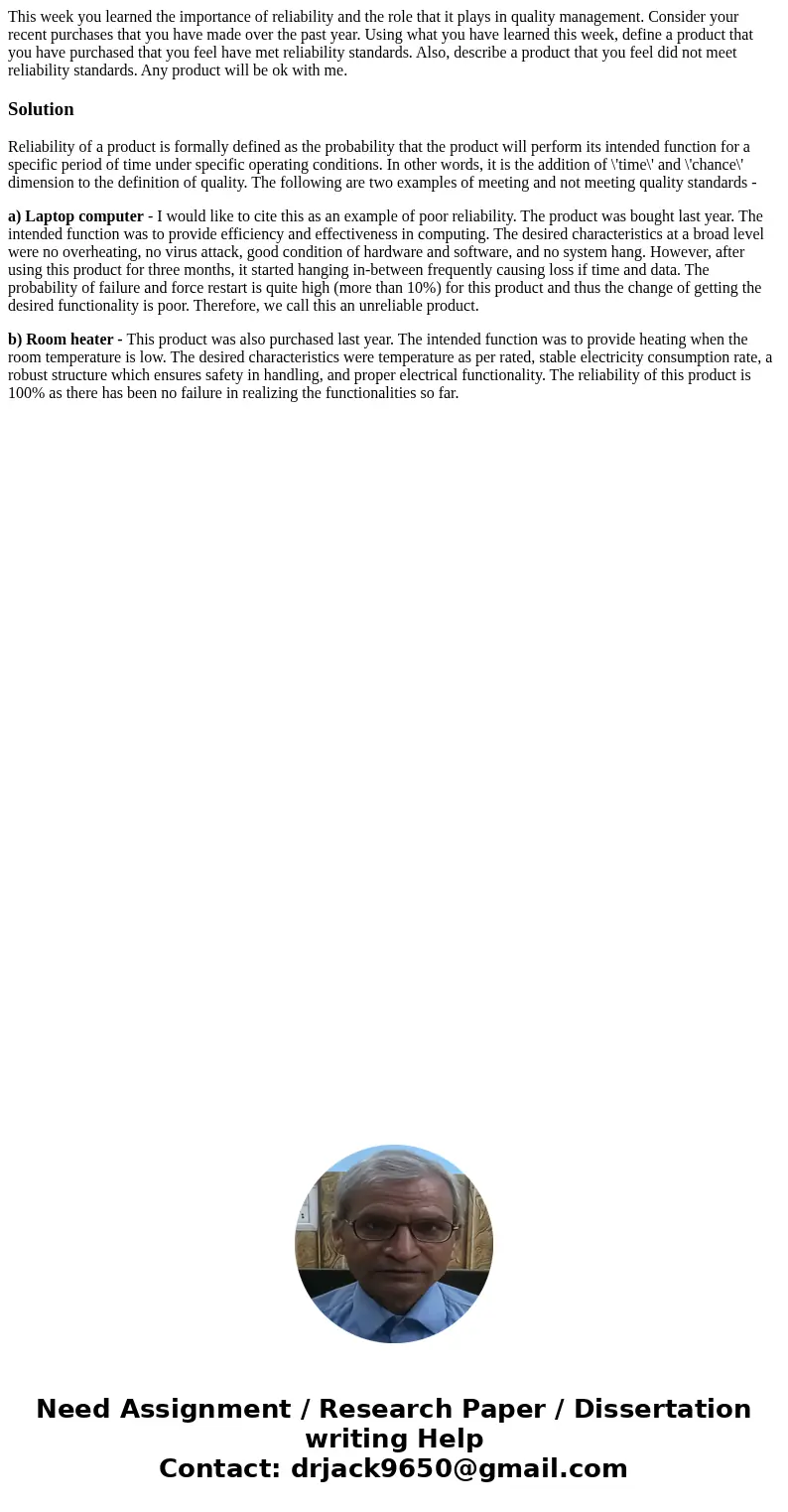This week you learned the importance of reliability and the
This week you learned the importance of reliability and the role that it plays in quality management. Consider your recent purchases that you have made over the past year. Using what you have learned this week, define a product that you have purchased that you feel have met reliability standards. Also, describe a product that you feel did not meet reliability standards. Any product will be ok with me.
Solution
Reliability of a product is formally defined as the probability that the product will perform its intended function for a specific period of time under specific operating conditions. In other words, it is the addition of \'time\' and \'chance\' dimension to the definition of quality. The following are two examples of meeting and not meeting quality standards -
a) Laptop computer - I would like to cite this as an example of poor reliability. The product was bought last year. The intended function was to provide efficiency and effectiveness in computing. The desired characteristics at a broad level were no overheating, no virus attack, good condition of hardware and software, and no system hang. However, after using this product for three months, it started hanging in-between frequently causing loss if time and data. The probability of failure and force restart is quite high (more than 10%) for this product and thus the change of getting the desired functionality is poor. Therefore, we call this an unreliable product.
b) Room heater - This product was also purchased last year. The intended function was to provide heating when the room temperature is low. The desired characteristics were temperature as per rated, stable electricity consumption rate, a robust structure which ensures safety in handling, and proper electrical functionality. The reliability of this product is 100% as there has been no failure in realizing the functionalities so far.

 Homework Sourse
Homework Sourse